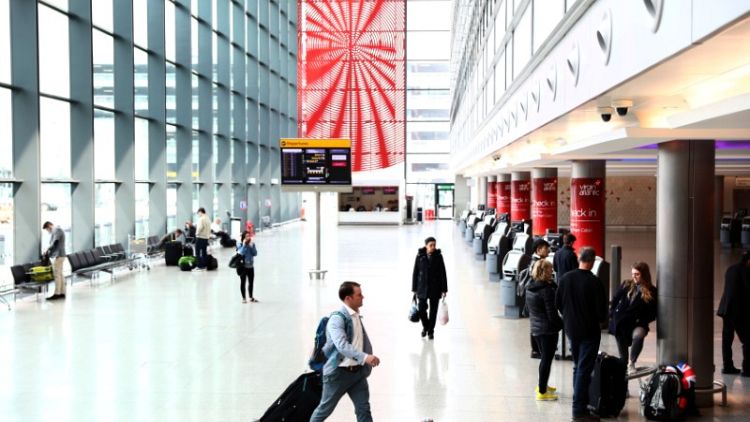By Andy Bruce and William Schomberg
LONDON (Reuters) - British inflation jumped unexpectedly to a six-month high in August, pushed up by bigger-than-usual seasonal increases in sea and air fares and sending sterling above $1.32 for the first time since late July.
Consumer price inflation rose at an annual rate of 2.7 percent in August, compared with 2.5 percent in July, the Office for National Statistics said - above all forecasts in a Reuters poll of economists that had pointed to a fall to 2.4 percent.
The ONS also said British house prices rose at the weakest annual rate in nearly five years, dragged down by the biggest drop in London house prices since 2009 - the latest sign of a slack housing market since the 2016 Brexit vote.
Wednesday's data jolted investors. British government bond prices and equities fell.
The figures are also likely to surprise Bank of England officials who had expected inflation to cool to 2.4 percent in August.
The BoE last month raised interest rates for the second time since the financial crisis but pointed to only gradual future increases as it expects inflation to drift down to near its 2 percent target in three years' time.
Jeremy Thomson-Cook, an economist with currency firm World First, said the jump in inflation probably reflected a pick-up in spending by consumers during Britain's unusually hot summer.
"I doubt this is sustainable in the longer term," he said, noting the continuing squeeze on household spending. "I don't think this has made Bank of England rate expectations any more concrete."
The rise in inflation in August represents a setback to the modest recovery in real-terms wage growth that has helped to support economic growth this year.
The fall in the value of the pound in August on renewed concerns about Brexit deprived consumers of the benefit of a fall in oil prices in annual terms, the ONS figures showed.
"Consumers paid more for theatre shows, sea fares and new autumn clothing last month," ONS statistician Mike Hardie said.
Consumer price inflation hit a five-year high of 3.1 percent last November, when the inflationary effect of the pound's tumble after Britain's June 2016 referendum vote to exit the EU reached its peak.
The ONS said house prices in July rose by an annual 3.1 percent across the United Kingdom as a whole compared with 3.2 percent in June - the smallest increase since August 2013.
House prices in London alone fell 0.7 percent year-on-year in July, the biggest drop since September 2009.
Despite August's rise in the headline rate of inflation, the ONS data suggested there could be some relief for consumers in the months ahead.
Prices at British factory gates rose 2.9 percent year-on-year in August, the weakest increase in four months. Manufacturers' costs for materials and energy also rose at the slowest pace in four months.
(Editing by Mark Heinrich)



